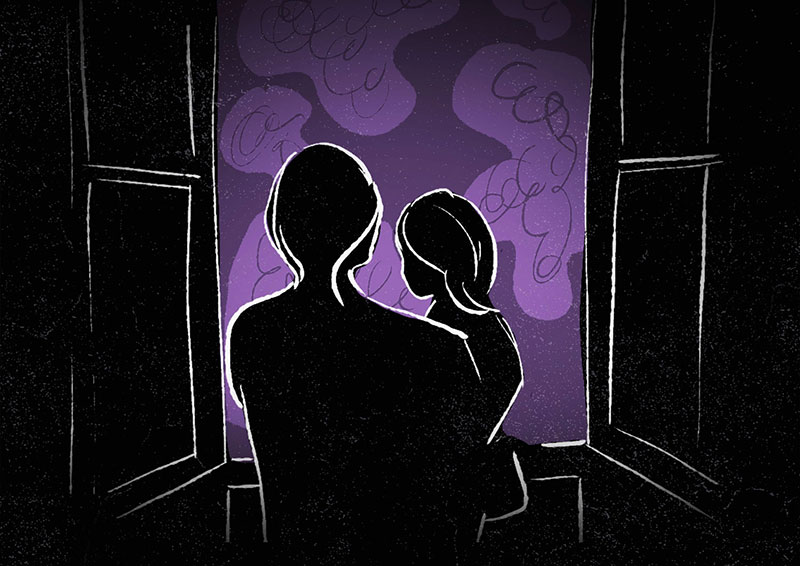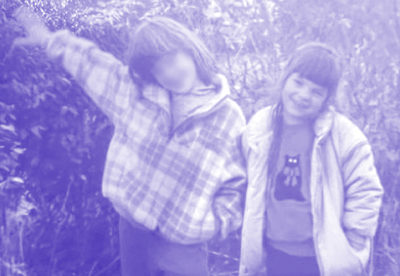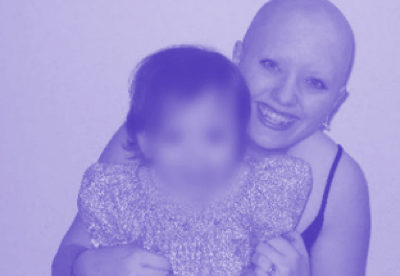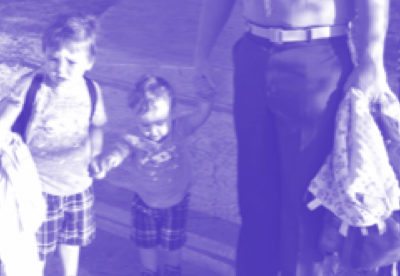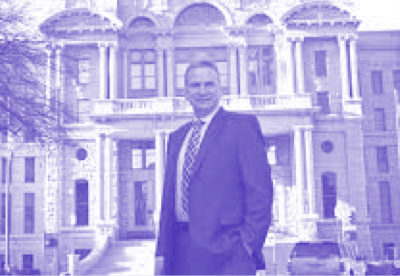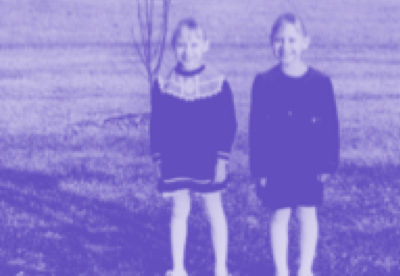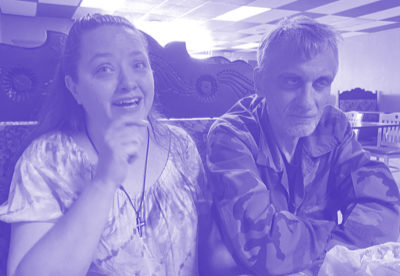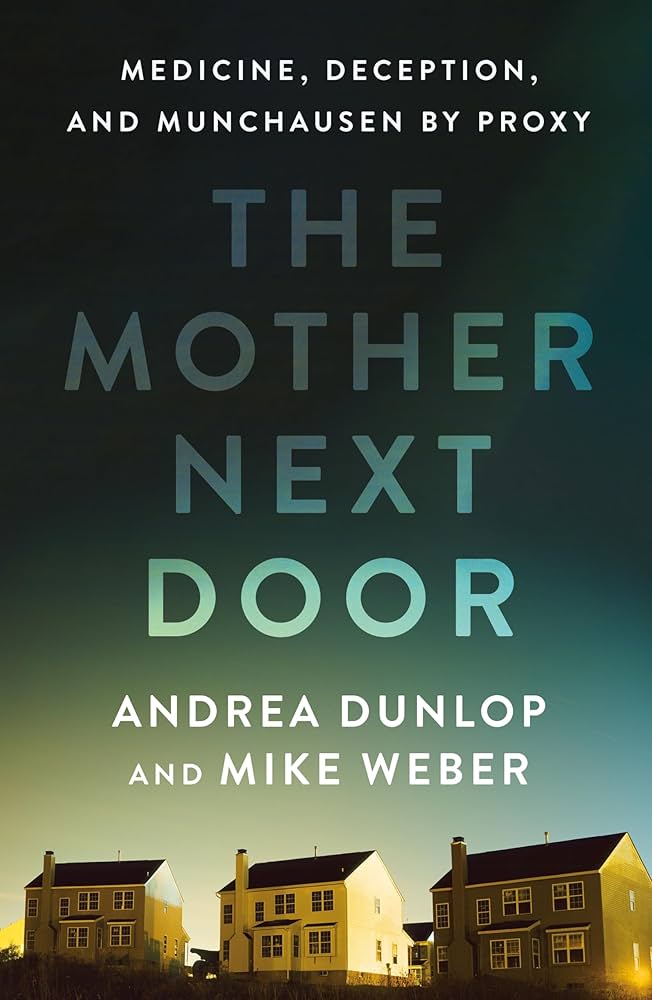SEASON 03 | EPISODE 01
Special Report: Watching Take Care of Maya (re-release)
Warning: This content includes references to suicide and child abuse. If you or someone you know is having thoughts of suicide, help is available. Call or text 988 to speak with a trained crisis counselor 24/7. You can also visit 988lifeline.org for additional resources and support.
As the Jack Kowalski v. Johns Hopkins All Childrens trial gets underway today in Sarasota, FL, we revisit our conversation with top experts Bea Yorker, Dr. Mary Sanders, Detective Mike Weber, and survivor Jordyn Hope about “Take Care of Maya” the Netflix documentary about the Maya Kowalski case. Today we introduce our third season of Nobody Should Believe Me, where we will delve into the complex notion of “false accusations” of medical child abuse, getting into everything we’ve uncovered about the Maya Kowalski case and the broader conversations happening around the nation. Is there really an epidemic of over-diagnosis of medical child abuse, or are offenders slipping through the cracks?
Host Andrea Dunlop:
https://www.andreadunlop.net
For behind-the-scenes photos:
https://www.instagram.com/andreadunlop/
Support the show and get exclusive bonus content:
https://patreon.com/NobodyShouldBelieveMe
For information and resources:
https://www.munchausensupport.com
The American Professional Society on the Abuse of Children’s MBP Practice Guidelines can be downloaded here.
More about Dr. Marc Feldman:
https://munchausen.com
[00:00:00] Hi it’s Andrea Dunlop. We have our first episode of our new season, yes season, not mini-series, this got un-mini very fast so we’re making it a whole season and expanding the scope beyond the Maya Kowalski case to cover the wave of “false medical abuse accusations that’s picking up steam”. In order to give you proper context, we are releasing the first episode we aired as a bonus about the film Take Care of Maya. If you’re a subscriber, you’ll also be getting the next episode today—early and ad free as always–and it will be in the main feed next week. This trial is starting TODAY September 20th as we’re recording, so you’re really along for the ride this season. One more note before we get to it, we’ve been nominated for a Signal Award and would love your vote! Link in the show notes. Now, here’s out roundtable discussion about Take Care of Maya
Andrea: This is a special episode of Nobody Should Believe Me. Today we are going to be talking about the Netflix documentary, take Care of Maya, and the case that it covers, the Maya Kowalski case. This is a story of a 10 year old girl who is brought to the hospital. Bit and subsequently separated from her parents.
Her mother, Beatta Kowalski was being investigated for medical child abuse, and tragically during that investigation, she died by suicide. So this is a very complicated story. This is going to be part one of a little mini series that we’re going to do on it because a lot more information is coming to light pretty quickly about this story.
So after watching the movie, I knew I wanted to gather together some experts to talk about it. So today we have some friends of the show, some of the top experts in medical child abuse, really in the country. So let’s get into it. We start with Be Yorker.
Bea Yorker: I’m a child and adolescent psychiatric [00:01:00] nurse. I also have a law degree. And I have spent most of my career being a professor of nursing and criminal justice. And currently I’m retired from California State University, Los Angeles.
My general impression was that it was tragic, just so sad. Um, and when I paused, I, I did have those feelings of like, oh no, this will deter all those people that were trying to educate about the possibility that mothers, and the reason I say mothers is the literature shows that 95% of perpetrators of medical child abuse.
And it will just deter all of the people that we’re trying to educate from pointing this out from reporting it. And as I mentioned, they’re mandated reporters to [00:02:00] report suspicions. And so this documentary may do a tremendous amount of harm in terms of backpedaling some of the progress that we’re making to protect children from really truly, um, mothers who you would not suspect of hurting their children from abusing them . My other impression is that there are
I wrote a law review article on the best practice to implement covert video surveillance as a method of detecting medical child abuse. And unfortunately what happened at this particular hospital was not best practice. I think that there are some malpractice. In this movie, I think some of the separation test might have been, again, not [00:03:00] according to our guidelines.
And I also think that some of the nursing care, as a nursing professor, we do see poor nursing care sometimes. And I think that was illustrated in this particular documentary. You know, I sort of looked at both sides when I watched it.
Andrea: You’ll probably recognize the voice of Detective Mike Weber from both seasons of this show. He had some very strong reactions after watching this documentary.
Mike Weber: I’ve been a law enforcement officer for 39 years, 15 years, investigating crimes against children and have investigated over 50 reports of medical child abuse and, uh, filed 16 criminal cases with, I guess now we have 12, 12 convictions? My impressions were it was a huge opportunity lost. What they could have done is looked at the actual [00:04:00] issues in this abuse. They could have looked at, you know, in this case there was a police investigation. They could have examined that police investigation. They didn’t. They basically hid that from viewers.
Um, they could have examined. You know, the problems of no policies. Well, I’m unaware that Florida has any policies in, in CPS on this abuse. Texas doesn’t. They could have examined those issues. They didn’t. They took the easy way out, which was a sensationalized documentary, um, that is going to set back the work that we’ve been trying to do.
because they’re getting huge publicity off this. So it’s just extremely concerning to me that it’s going to affect judges and judges and doctors are people and human nature is a real thing. And. Judges are elected, so they are going to be responsive to the public at large, as they should be.
And [00:05:00] this is going to be just a huge obstacle to overcome in future criminal cases that, that I try to file. I just wish that they had taken a serious look at this subject matter. And examined all strengths and weaknesses, um, in that case.
Mary Sanders: Hi, I’m Dr. Mary Sanders. I am a clinical professor in the Department of Psychiatry at Stanford University Medical School, and I am a clinical psychologist. I agree with what Bea and Mike said, that this was just incredibly sad. Everyone I know that watched it cried, including me. I felt so badly for this family. I, of course, am aware there’s many sides to this story that we are not hearing. And I also agree with Mike that there were so many missed opportunities to hear those sides.
If this case is tried, I hope we get some of these questions answered. One of the questions I had was why was this mom not allowed in [00:06:00] person supervised visits? I think it was for so many reasons, missed opportunities.
If the people felt that there was some sort of coaching or something was going on between the mother and child that promoted this story of illness, then, why not have the supervised visit and see what’s coming? You know, what, what’s happening when these, this parent and child interact?
How is that going? As long as, of course, the child is kept safe. I don’t know if we’re going to Even if the case goes forward, get all the answers to what happened in this case, because I don’t know how much we’re going to hear about the Child Protective Service end of things as well.
Jordyn: Hi. I am Jordan Hope. I am a Munch housing by proxy survivor. I’m currently a BSW student at Fon University. I work with Munchausen Support and I help with creating support groups for survivors as well as with helping find resources and referrals for those impacted by [00:07:00] Munchausen by proxy. It was really hard to watch for a lot of reasons. It was really hard to see some of how the nurses or the doctors, like, interacted with Maya, because From at least what they showed on the documentary, there was like a lot of them kind of blaming her, or showing like her being the one that’s maybe faking illnesses or doing different things, instead of just showing Maya, like some unconditional support and care and love. I think there’s a lot of pieces that everyone’s speaking to of both sides of it where They only showed like the one side and Oh, hospitals are bad.
CPS workers are bad. Like all these people are bad, but they didn’t also then show all the other sides of like the whole picture of what was going on. So it was really hard to kind of understand. happening. My bias of being afraid of hospitals and having [00:08:00] issues within the system was definitely triggered.
And that like really pulled on my heartstrings throughout the entire documentary.
Andrea: Let’s talk about Florida’s privatized child welfare system privatized does not mean for profit, so that’s an important distinction
florida is one of, I think, two states that has Some of their child welfare system privatized. And so it was basically a result of some reforms that started happening in the late 90s when they were having just these massive, massive issues with, um, child deaths, um, in, you know, people who went home with a safety plan and then You know, their child passed away, um, and also just a lot of kids sitting in foster care and that they didn’t have enough foster families and like kids were sleeping in government offices and just this horrible, you know, state of affairs.
So they made these reforms and basically the state started contracting with local community based care organizations, all of which were nonprofits. They are still being paid by the government. So this is being [00:09:00] funded by the government. This isn’t like. Some shady person in the background sort of, you know, funding it that for some reason wants to separate kids from their families.
There is no financial incentive to separate kids from their families. That is something that costs the government money to do. I mean, just the idea that Department of Child and Families in any state would have the resources to like give doctors kickbacks it’s just, that is wild.
These are some of the most underfunded programs in the country.
One of the defense attorneys for the family who they put on camera in the movie says that any parent bringing their child in with an unusual illness can get accused of this. And also that CPS investigators have incredible power to remove children. Be, what are your thoughts?
Bea Yorker: The first one that any parent bringing their child in with an unusual illness can get accused of this. In my experience, it is exactly the opposite
the cases that I get involved in often involve [00:10:00] fathers or grandparents or family members who are seeing the patterns and starting to question this. And when we do finally get the medical records. We see that doctor after doctor after doctor has failed to recognize many signs of medical child abuse and will refer the child on to another doctor.
It is actually quite unusual for the health care field to recognize and to stop a parent when they bring their child in with an unusual illness.
Andrea: My biggest issue with the coverage of this case is the omissions, frankly. And so I think that this case is very much presented, especially in the film on Netflix as, this was one doctor.
This was one report. They mentioned she spent, you know, 10 minutes talking the [00:11:00] parent and it sounds as though it was all based on on that. There was some great local reporting that Mike sent around that we’ll put in the show notes from an outlet called Catalyst, and mentioned that in the motion that was presented to the court to have this decision, right?
I think that’s the other sort of thing that it glosses over here, right, is that it makes it sound as though CPS itself as an agency has the power to separate families, which it does not. They have to bring evidence to a court, a judge makes that decision. When they brought Maya to Johns Hopkins before this incident, there were numerous reports from other hospitals. And that is something that is mentioned in this other piece that was very much left out of this. There’s also this quote that it says that, in those family court proceedings that it’s easy for doctors to win. To just come in with their opinions, no evidence backing that up to win in these, in these court hearings. Mike has that been your experience in these cases?
Mike Weber: Quite the opposite. What I worry about with this [00:12:00] movie is that it has, you know, we’ve done a lot of work in Tarrant County to try to educate our family court and, you know, judges watch TV too. And now I have to worry about this having influence over them. CPS doesn’t remove kids. Judges remove kids.
Family court judges make that determination based on evidence presented to them.
Andrea: The defense attorney who’s, who’s talking on camera, introduces medical child abuse in this way that I really took issue with where I mean, first of all, she says, now there’s this new diagnosis of medical child abuse. It’s not a new diagnosis. It’s been around for decades she was very much framing it as this is not a real thing, or this is so rare that no one needs to actually be worried about it.
This idea that family court overall has this very heightened sensitivity to this and is just going forward with these removals without proper evidence. I mean, is that something that you have seen any evidence of?
Mike Weber: Again, quite the opposite. In my [00:13:00] county, we’ve, you know, they see a lot of them because I file a lot of criminal cases. As far as this not being a real thing, well, we have 12 convictions in our county that say otherwise. And most of those are guilty pleas. The problem is there’s normally not a police investigation in these cases. The Kowalski case is different and they mentioned hardly anything about that investigation.
Andrea: Another thing that came up that I think is, is a really common misconception about this abuse that we have talked about on the podcast before, but I wanted to address specifically, you know, they make this mention that Beata, who is the suspected abuser, um, got a psych evaluation and this was with someone that was hired by the family’s lawyer.
And they said, you know, I believe the quote was that she was cleared of having Munchausen by proxy. Dr. Mary Sanders, I wondered if we could check in with you about whether or not, Munchausen by proxy or what they’re really talking about here is, of course, the underlying disorder, factitious disorder imposed on another.
Is that something that can be determined during the course of a psych evaluation?[00:14:00]
Mary Sanders: it depends on the psychological evaluation chosen by proxy is falsification and deception. So in order to determine that, you need to obtain all the medical records and analyze the medical records. See if there’s evidence of deception, you know, has this child been presented as ill and does this story is what is presented?
Does it actually fit the data? And so it takes quite a bit of time to look through all these medical records and do this. And then based on what you find, if you do find discrepancies in the psychological interview, you can ask the parent about these discrepancies. And also rule out if there may be some other reason, uh, mental health illness that may, uh, speak to why the mother is presenting their child is ill. So basically the answer is it depends. If an appropriate evaluation was performed.
Andrea: What struck What struck me was this idea that you would rule it out. And I’m assuming that You know, [00:15:00] they did not they would not have had time at this point to have gone through all the medical records. This happened early in the investigation, um, you know, and I think like with sort of putting it in this context of of medical child abuse, rather than it being something that is simply a mental health issue with the mother, right?
You’re looking for a pattern of behavior. So it’s not as though sort of sitting with someone in a room for an hour is going to be able to tell you whether or not they are right. A perpetrator.
Mary Sanders: Absolutely, you are right. A sort of normal just psych evaluation would not make that determination. It’s, it’s based on the records. And as far as ruling it out, what, what you may find is you may, you may look through all the records and not find evidence of deception.
However, we also could have a situation that’s more over medicalization. So not based on falsification, which would mean that this was not a case of Munchausen by proxy, but still medical child abuse. It could be a situation in which the [00:16:00] child may even have a medical illness, but is being inappropriately treated or over medicalized.
Andrea: Right. And I think there’s some really good nuance there. And um, Bea, did you have something you wanted to follow up on with that?
Bea Yorker: I just wanted to point out that our guidelines say that a clinical psychologist or even a psychiatrist is no better at detecting lying on an interview than the average person. And so you don’t find evidence of deception from a typical psychological evaluation.
Andrea: Right, so it has to go along with this medical record review process where you’re looking at what did the parents say in this instance, did they change their story, are they saying other things to friends and family, right? We’ve talked about how complicated these investigations are. So let’s talk about the actual underlying issue that Maya has, [00:17:00] because I think there was another big thing that this was presented as that she came back for being positive , of having the diagnosis that her parents said she had and that that was something that meant that medical child abuse had not happened, which is a misconception, but I want to talk through that.
So CRPS, which is, complex regional pain syndrome, can we talk a little bit about what this is and why this is the kind of thing that is very complicated to diagnose? So B, do you want to walk us through that?
Bea Yorker: So in pediatric patients, complex regional pain syndrome is, a variety of different specialties. It is multifaceted. So treatment involves, first, physical therapy. So, exercise and physical therapy are cornerstones of a treatment plan.
Psychotherapy, and specifically cognitive behavioral therapy, which helps , [00:18:00] develop better responses to upsetting thoughts or stimuli. Medication, and the medications, the first line of medications is antidepressants. Tylenol. non steroidal anti inflammatories and, in really extreme cases, gabapentin, which is an anti seizure drug.
And then another facet is nerve stimulation with transcutaneous electrical nerve stimulation or a TENS unit. It uses low voltage electrical current to help relieve pain from the chronic regional pain syndrome. So that is the standard of care for treating… anybody under 18.
Andrea: The story that Jack Kowalski, who’s the, the father of this child, presents in the movie is that their daughter was in debilitating pain and that they were having to go to more and more [00:19:00] extreme lengths to treat this pain. So, you know, B, you just laid out sort of the standard treatment protocol.
So I think their story is that they were doing all of those things and none of those things were working and that they were just watching their daughter be in excruciating pain, which as a parent, you know, that that tugs your heartstrings for sure. Um, they got her into a very controversial type of treatment with ketamine treatments, which it sounds like from what I was able to tell, again, obviously not a doctor over here, there, there are some legitimate medical uses for ketamine, but it is pretty experimental.
And they went to obviously a huge extreme in that they took her to Monterey
Mexico
and put her in a five day ketamine coma, which was supposed to help with her pain. That’s a very extreme choice. It’s hard to see how anyone could not frame that as a very extreme choice.
With all You know, with all sort of respect for the fact that, obviously, you would not [00:20:00] want your child to be in pain. But I was struck by that and there were some things that were really left out about the way that this mother was acting.
I think there are some really complicating factors with this case. Beata is not here to speak for herself. She died by suicide. That is obviously a very tragic thing that happened to this family and to these children. She was an immigrant.
She had a strong accent. I think that we would be naive to think that that does not sort of affect the way that doctors might have perceived her, that she might have come across. However, with all of that said some of the notes that did not get mentioned was that the things that doctor observed, the doctors observed when she brought Maya to the hospital so it’s a quote again from this Catalyst article that several doctors personally observed that Mrs.
Kowalski was aggressively hostile towards providers who disagreed with her, screaming and demanding that Maya be placed into a medically induced coma and have a pump implanted in her spine. And [00:21:00] Beata once stated while she was in the hospital that Maya was in so much pain that she quote wants to go to heaven.
The doctors observed while Maya was there that she acted inconsistently with her mother’s claims of severe pain including standing up in her bed and sitting cross legged. And told a nurse at one point that she was tired of these lies, quote. So obviously there was, it’s easy to see with that context why this would be alarming behavior, right?
These ketamine treatments, they can kill a child, right? I mean, B, can you give us a little bit of context for like, how much this child was possibly in danger?
Bea Yorker: So ketamine treatments currently are not even really approved by the FDA for, um, especially for pediatric patients. There are some, very promising studies that are being done, particularly for post traumatic stress disorder for people who are dying [00:22:00] and in hospice and palliative care that it.
does allow people to transcend a lot of their fears. Um, so I absolutely support research into psychedelics that could be medicinally useful for the chronic pain. Um, there are very few, uh, routine treatment facilities that will administer it to children. Obviously, Dr. Kirkpatrick was one of these. And then, to induce the coma, you can’t even do it in the United States.
It is so dangerous for children.
Andrea: And another thing that was mentioned in this article that Maya was, when she was admitted to the hospital on this occasion severely underweight and hadn’t eaten for five days. before she arrived because she wasn’t quote, allowed. I’m just seeing again with the sort of the behavior towards the doctors, the insistence on dangerous medical treatment that the doctors are saying is not necessary.
And [00:23:00] again, this thing we see with feeding, which I think are just, those are three elements we’ve seen in almost every case that we’ve seen. So Mike, what, what’s your reaction to that?
Mike Weber: A lot of times these offenders push for treatments that are on the edge, right? The experimental, the, the special treatment. Now that doesn’t mean that she’s committing this abuse, but yet it is another red flag to add to that concern.
I’ve actually seen ketamine and it, pushed for it in another case. She didn’t get it. And I consistently see these offenders trying to push toward those special treatments that maybe others aren’t getting.
Andrea: Obviously it’s horrible to see your child in pain and I can imagine being in this position
and sometimes doctors are incredibly condescending towards moms and towards parents. And like, these are all real things right now, but the idea of pushing for treatment. That would put my child’s life at risk when there was something like physical therapy, [00:24:00] gabapentin, those kind of things where there’s no risk of death.
As a parent that seems unimaginable to me I’m very lucky that I don’t have a child with a chronic condition, so I don’t want to completely say that there’s no, you know, there’s no loving parent that would sort of continue to push the envelope, but I talked to a friend of the show who is, who is a pediatrician in Florida and she actually, I’m going to give some of the context she gave me for sort of some of these systems in Florida that they, they harped on a bit and just give some context for how things work over there.
One thing she said that really resonated with me is when you have a child who is who has like a terminal condition, who has terminal cancer, and you’re trying to go up the line of getting these more and more experimental things, it makes sense that if your child has a diagnosis where you’re just trying anything,
but in this case, it just seemed a bit murkier with this diagnosis that she had. I have to say the doctor really complicated things for me in terms of motives, because you see this Dr. Kirkpatrick saying that he told. The mom that [00:25:00] if her daughter did not receive these treatments, she would die a slow and painful death.
And then of course they cut to Maya and here she is beautiful, healthy 17 year old. So obviously she did not die a slow and painful death from not getting ketamine treatments. I want to go to you, Joe, and just ask you, I know you had some strong reactions to this.
Jordyn: So initially when I watched the documentary, I had not read anything about the case. I kind of wanted to go into it and just like watch the documentary as is before. reading too much from anybody else. I felt so horrible for Maya the entire time. I hated the doctors that they wanted me to hate.
I hated the system. I very much. fell straight into every single part of what they were trying to accomplish within creating the movie. And I actually reached out to you, Andrea, and I was like, wait, this isn’t MBP, right?
I [00:26:00] think as a survivor, I feel a lot for people that have medical struggles or that are going through like this sort of stuff, I didn’t have the system on my side for a lot of things in a lot of ways, and went through so much unnecessary abuse and trauma because of that and so seeing somebody that seemed to be in severe physical pain, all
I wanted for her to be able to get help, even though if I look at my own medical records, I can see some things that doctors said about me faking coughs or doing things for attention or things that.
When I read them, I’m like, okay, well, it wasn’t my fault. . And I can remember like sometimes in the doctor’s office feeling Oh, they’re not listening now. They don’t believe me. They think I’m doing this bad thing when at the time I had no idea and thought that I really was sick and didn’t realize that I was like over [00:27:00] exaggerating anything at all.
I can see now when I read those, but as a kid in that doctor’s office, I felt like everybody was against me and nobody was listening. It was always me and mom against the world. And so it was hard for me to not. Jump in to just like defend the family as I read more about everything and had conversations and began to understand all the other sides of the case that weren’t on the Netflix documentary everything shifted my heart goes out for Maya.
I still feel Just immensely sad for the situation and for what she’s going through. But I can see it now a lot more clearly and I can see how the doctors, did their part. How there was the evidence and how there were all those pieces. And once again, when I think back to… In my own case, um, if everything that they were saying in the [00:28:00] documentary was true, I would have been taken out of the home before I was one year old.
They had enough evidence by the time I was a few months. I think really strikes me and really struck me as, like, wait, this doesn’t really make sense Maya says like she still has this thing like she’s still in pain. She’s still suffering and That really struck me because I was like, yeah Well, I thought I had asthma until I mean what just a month and a half ago and when I go for a run I wheeze I have full asthmatic symptoms. I get close to passing out like I get really really sick sick.
I just learned that I don’t even have asthma and I still like have those symptoms, but it’s just like vocal cord dysfunction. It’s like something totally different. But like when you Spend your whole life thinking and being told and trained to be told that you have this disorder and you have this disease You’re gonna start to have the symptoms and you’re going to like display them So [00:29:00] even though mom isn’t in the picture anymore it makes complete sense that she would still have all of those symptoms because She obviously, like, thinks that she has that.
Like, how would she not when she’s been programmed that way for so long?
Andrea: I really like everything you said there, Joe, and this is just a perspective that has been so helpful to all of us on the committee to have from you and from the other survivors that we’ve talked to, but in particular you since you work so closely with all of us, And this comes up in the, in the film, right?
They said, and I don’t think this is quite an accurate depiction, but they said, Oh, they changed the diagnosis from Munchausen by proxy to, you know, Munchausen or a factitious disorder imposed on another defectitious disorder. Sort of implying that they said, Oh no, this girl is faking her own stuff. And I mean, that was in sort of.
irresponsible presentation of it because they obviously were still investigating the mother at this time. But it can be very hard, especially if you’re talking with, about a young victim, but even into, you know, for a lot of survivors that we’ve talked to up into their 20s and [00:30:00] 30s, and your vocal cord dysfunction, that’s a result of your abuse, is it not?
Jordyn: Yeah, it’s a direct result from the induced vomiting from my mom in, as a baby and stuff. Which is interesting. Something that I, like, realized, or was thinking about the other day, because I just had COVID and then I had strep. Um, so I’ve been having some vocal cord dysfunction, like, It’s been like exacerbated.
The other night I was like having a coughing attack where I couldn’t stop coughing for several minutes. And I had a whole flashback to back in high school. So I was 15, 16 at the time, and I had, um, pneumonia, which was diagnosed on a chest x-ray, but I had a coughing attack. Very, the exact same thing happened.
My mom took me into the er, said I was having bronchial spasms from my asthma. They gave me a bunch of medication and I remember being in the ER and I remember like coughing extra because I knew I [00:31:00] could stop coughing, but I was scared if I stopped that I would get in some sort of trouble, or they wouldn’t be able to help me, because I thought something was wrong, because my mom said that, like, I was going to die, you know, that this really bad, scary thing was happening.
I started coughing more to try to make sure that I could get the care and the help that I was needing. So it’s like sometimes you’re aware even of the fact that you might be exaggerating something a little bit, but it’s not for attention or in like a Munchausen type way. It’s because you literally are told that you’re about to die or that something bad is happening.
So you’re gonna like exhibit more severe symptoms.
Background: As you say, Joe, your entire reality when you’re a victim of this abuse is being controlled by your parent. And so they say in the movie that at one point the doctors switched their diagnosis from Munchhausen by proxy to munchhausen.
That’s not true. This was during a criminal [00:32:00] investigation for medical child abuse into Beata Kowalski. So what they were observing in Maya, the child who is 10 years old at the time, is that her behavior around her pain and around her illness was very different when her mother was present than when she wasn’t present. And this is a telltale red flag for abuse.
So, She had said things to medical professionals, Maya had about, I’m tired of these lies my whole life is a lie. And even tellingly that she wanted to be better, but was a afraid that that would upset her mother.
Dr. Sanders, I wonder if you could talk a little bit more about this.
Mary Sanders: When you grow up and I think Joe, you said this so well, when you grow up with a story of illness, that’s a culture, you know, that’s a story, you know, about yourself and, and it sounds like, you know, in, in this situation, there was some evidence in which I, I guess she was scratching herself and, um, moving her legs and things that didn’t fit with the [00:33:00] story.
This is what she’s been told that she has, This problem. I totally agree.
Andrea: Yeah, yeah, but we should, I think, no matter what side you’re on, I don’t think anybody blames the victim. Nobody blames Maya. Everyone on this call has just the utmost compassion for her and what she’s been through. The family has not volunteered to share medical records. And I have to say, and this is obviously this is up to every parent, right? Not every parent might feel comfortable with having all of that public. But if I was being accused of this or my, if I felt my spouse was being unfairly accused of this, I would be like, take all the records.
I would say, look at everything. I have nothing to hide. Like if you have nothing to hide, you have nothing to hide. I’m not saying that this family has It’s, it’s trying to hide things, but I think it’s like people need to recognize how one sided this narrative is without any of this, context around why there were these suspicions and there seems to be this sort of back bending in this movie into saying that Somehow the doctor is profiting and somehow this organization that she worked for is [00:34:00] profiting.
I have to just say this as a parent, I cannot imagine what her father is thinking, sticking her at the middle of a national media spotlight.
In, well, while her and her brother are going through all this.
Mike Weber: As you know, Andrea, I’m not a big believer in coincidences, as a detective. , I just thought it was important to bring up that, you know, there is another motivating factor here.
And it is a big pile of cash. Just going back to , dad putting his daughter in this position, just being the police officer that I am with the, you know, the, uh, suspicions that I have never discount the motivation of money. And when you’re looking at a 220 million lawsuit, that’s a lot of money motive to throw on top of it.
And in dad’s defense, he also has a ton of lawyers in his ear telling him they’re going to get this money for him. So, that is also motivation going, going forward with, with the lawsuit. And I find the timing of this movie highly [00:35:00] suspicious. Whenever the court is considering whether they’re going to allow them to sue for punitive damages, they release the movie and magically.
The court allows him to see for punitive damages.
Andrea: so this Maya Kowalski story, like many other similar stories I’ve seen covered in the media is being framed as a false accusation, but, It is not a doctor’s job to accuse, investigate, or prosecute a parent for a crime.
A doctor’s job is to report when they have a suspicion of abuse.
Doctors will be the first to tell you that they make mistakes. Medicine is an inexact science by its nature, right? I don’t think any doctors would present themselves as never having made a mistake. I mean, it’s not to say that it. There aren’t doctors out there who are jerks to parents or don’t listen to parents or provide bad care.
All those things are true. Right. And Joe, like I know you’ve dealt with a lot of that in the system and still deal with that, right. Being, being misunderstood, especially given your, your [00:36:00] particular circumstances. But what I think is really wrong headed to me is this idea that, somehow this is something that a doctor would want.
Right? To accuse a parent of medical child abuse. In Dr. Carol Jenny’s book on medical child abuse, she talks a lot about this, right? One of the barriers to dealing with this abuse is that it’s so horrible for doctors to realize that they’ve been used as a tool to abuse a child that in fact, they may sort of look for.
Any other explanation for what’s going on than that, these are people who went into their profession by and large because they want to help children and to realize they’ve been used to hurt.
Children is horrible. It affects their ability to do their job going forward because They have to be able to trust parents to give them reports in pediatrics or they can’t do their job. And then they know, especially now in this climate, that on the other side, might be waiting for them, um, a big documentary that’s going to permanently ruin their reputation and, cost them their livelihood. That to [00:37:00] me is a really horrible state of affairs.
So, B, I wanted to ask you, I think my question for the people on this sort of side of like, these are all false accusations and these doctors are out of line. Do we not want people? to report suspicions of abuse? what is the sort of doctor’s role if they suspect abuse and what is their responsibility to a child in their care in that situation?
Bea Yorker: Doctors. And nurses and teachers and dentists and therapists are all mandated reporters. And being a mandated reporter does not mean you have to prove the child is being abused. All that a mandated reporter must do is report if they suspect abuse.
And so if doctors see that the mother [00:38:00] told them that the child was vomiting and the child was dehydrated, and the doctor does not see this, and it’s happening repeatedly, and there is an evidence of doctor shopping, then yes, a doctor is mandated to report. Does that mean it always happens?
Absolutely not. And especially not in medical child abuse, because as you already pointed out, doctors would rather try to figure out, is there something we’re missing here? Do we need another test? Do we need a genetic test? Is there some other explanation for why the standard of care is not working on this child?
So really doctors are on the other side.
Andrea: So you have this story, you know, it’s set up in a very particular way. It was very notable to me that they did not have an expert come on and explain Munchausen by proxy or medical child abuse.
They left that to the [00:39:00] defense attorney who explained it in a way that makes it sound like it’s not a real thing, quite frankly. That was how I would have had the impression, I think, if I was listening, be like, oh, this is a sort of, you know, outre diagnosis or what have you. And then at the end, You know, the filmmakers take this big zoom out of we heard from all these parents who say they’ve been falsely accused and let them all just tell their stories without presenting any evidence, any context, anything.
If you have just watched that story, you are so set up to believe that there is an epidemic of false accusations, and then they say, look at all these people who we’re talking to, and I just don’t think I have to say, you know, we’ve compared this a lot, right, to child sex abuse in terms of the sort of criminal behavior, um, of, of parents and, I do, I have trouble imagining that you would get the same mileage out of a bunch of dads coming on camera and saying they’d been falsely [00:40:00] accused of abusing their children just because criminal charges didn’t stick.
Um, there’s lots of reasons that cases can fall apart in the system other than that there was, you know, nothing there. And obviously, like, this is where, you know, my personal bias shows through, right? My, we’re going to talk about that in this season, but my sister has been presented in the media as a mother who was falsely accused.
And I’m going to talk about why I think there, there’s a lot of evidence there to the contrary. Obviously false accusations must happen, right?
I take that for granted that there must be such a thing as false accusations because there’s false accusations of everything. But what I look at is what it seems analogous to me is that do false accusations of rape happen? Sure. Everything happens. People are people. Is the problem false accusations or is the problem underreporting and not holding people accountable?
To me it’s the latter and to me I think this is the exact same situation. I am not saying that there has never been a false accusation, that a family has never been treated badly by the system. Of course not. Do I think that [00:41:00] there’s an epidemic problem of false accusations? No, I think there’s an epidemic problem of underreporting and I wonder what everyone else thinks.
Bea Yorker: You said it beautifully. And unfortunately, Dr. Smith was not quoted in the documentary where she, you know. Just basically explained how hard it is to be a child abuse pediatrician because you see the saddest, most abhorrent things that are done to children every day. And you try your best to protect children.
And that part just was absolutely omitted from the entire narrative of this documentary.
Mike Weber: Well, and, what really struck me is, they presented no evidence, right? You are set up to believe that [00:42:00] all these people have been falsely accused. You don’t know if they were criminally charged. You don’t know if they were criminally convicted. You don’t know if they’re on probation. You have no idea. What worries me is there have been, Offenders in this particular form of abuse, medical child abuse, who have the ear in my state of state legislatures, right?
They can be highly influential. A crying mom with a medically fragile child that the state tried to take away. That’s very powerful. And not only that, you know, on the cynical side, that can be a lot of mileage for a politician. And they have been extremely successful in my state of getting the legislatures here, of making things harder for CPS and for us to file criminal cases on child abuse.
And we’ve seen a shift, you mentioned Florida, the pendulum has swung. [00:43:00] Um, it’s, you know, it’ll probably swing back at some point when a bunch of kids start dying. But the pendulum has swung to parents rights over children’s rights. And at least in my state . my concern with that ending is now you’re going to see that push nationally.
Andrea: Something that’s always struck me is that , you don’t see the media covering cases unless the child does die. Like the Olivia Gantt case, which I think like that is a case that we’re all familiar with. It’s a case of a little girl in Colorado. The hospital had suspicions, they did not report.
They let her mom take her home to in home hospice and she died. By starving to death, and there was nothing wrong with her. And this wasn’t even investigated until years later when that parent tried to bring their other child in for unnecessary cancer treatment, and then they reopened the case of this child’s death.
The grandparents of the child rightfully, in my opinion, sued the hospital because they found that they [00:44:00] had suspicions and did not report.
Mike Weber: What are we asking child abuse pediatricians to do? If they don’t report, they get sued, right, in the Olivia Gant case. If they do report, they get sued in Maya’s case we’re putting them in a very tenuous position and I don’t know what that we expect them to do in those situations.
Mary Sanders: Mandated reporters need to report when there’s a reasonable suspicion of abuse. And then, There needs to be further evaluation. I have been on the end of doing those further evaluations. And sometimes we find that there isn’t substantial abuse. To me, that’s not a false accusation.
There is suspected abuse. We evaluate, we don’t find abuse. Um. I’ve had a number of those cases, uh, and at the same time, I agree with what everyone is saying here. It’s much more likely to be the other way around, where we don’t get the reports, and then later the, the child continues to be harmed, and in [00:45:00] some situations lose their lives.
Andrea: I think it’s really important for people to have those stakes in mind because I think a lot of times these news outlets, they don’t do, like they sort of ignore the child. You know, they’re not, they’re not saying like, well, if it’s abuse, this could be deadly .
They’re just sort of going on the assumption that it’s not, which I find really troubling.
Jordyn: There were many doctors in my case that did report and did try and the system still failed. I still, you know, got left where I was, but those records, like, later on did help me be able to get out and, like, get help. So, like, the, their reporting, Did end up helping once I was old enough to speak up a little bit more about other things that were going on in the house And so even even if nothing happens From the report initially, it’s still so important to have that paper trail and to now have all of these people that are really scared [00:46:00] for a good reason after watching a documentary like that to report.
It’s just going to end up making it so more children get stuck in these abuse situations and it’s terrifying because A lot of children don’t end up living then and it’s just it’s heartbreaking to like think about how many Children, we are all sitting here trying to like help save and raise awareness and do these things to Change how things are and then to have things like this documentary come out that directly go against everything that we’ve done research on and have been fighting for for so long it’s just it’s devastating
Andrea: Thank you, Joe. , I agree with you. And , one thing that we do know from looking at a lot of these cases, which again, are sort of more likely to fall apart than, than not, even if there is really strong evidence is that those interventions can slow down the abuse or change the trajectory of it.
And so, um, I thank you all so much for being here. And, um, Keep fighting the good fight, [00:47:00] everybody.
Since recording this episode, more about this case has come to light and I have a lot more documents that I’ve been looking through about what the actual evidence against Beata Kowalski looked like, and so I am going to talk through all of that in a part two.

